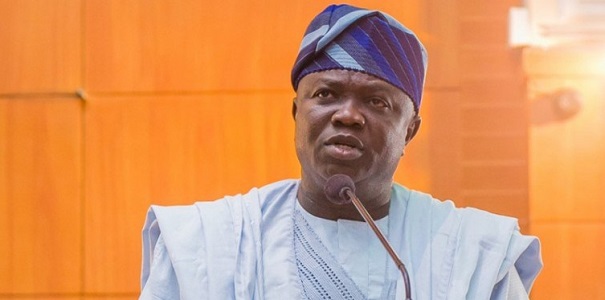Business
Lagos monthly IGR hits N34bn

The Lagos State Government has said the state’s average monthly Internally Generated Revenue (IGR) has risen to N34 billion in 2018 from N22 billion recorded in 2015.
Akinyemi Ashade, the state Finance Commissioner, stated this in Lagos on Monday at the ongoing ministerial press briefing of the state to mark the third anniversary of Governor Akinwunmi Ambode in office.
Ashade said the state was recording significant improvements as the 2018 performance was way more than what it achieved in the last three years.
“Notably, we are recording gradual improvement in our average monthly IGR in 2018 compared to the levels achieved in previous years due to the impact of ongoing reforms and growth in the state’s economy.
“Based on our first quarter results, Lagos State has so far achieved an average monthly IGR of N34 billion in 2018 compared to monthly averages of N22 billion, N24 billion and N30 billion in 2015, 2016 and 2017, respectively,” he said.
Ashade said that the state had set a N50 billion target but could not achieve that because of some challenges it faced.
He, however, expressed optimism that the state would meet the target in 2019.
“The target we set for ourselves is N50 billion, but we all know the kind of push backs we have experienced, including people going to court and all that. Our commitment is not for now; it’s for the future of Lagos.
“We know it is a marathon, we would win some and we would lose some, but we are very committed towards ensuring that we meet the target.
“But, if we do not meet it this year, definitely there will be another year, but we believe we will succeed in that target we set for ourselves,” Mr Ashade said.
The Commissioner also noted that the state had received a total sum of N327 million oil revenue, comprising N197 million received in 2017 and N130 million in first quarter of 2018 since it joined the league of oil-producing states.
Read Also: FG’s VAT on imports drops N3.58bn in Q1 2018
“Furthermore, we are in discussion with federal government toward obtaining refund for expenditure totalling N51 billion incurred by the state government on behalf of the federal government for infrastructure projects development in the state.
“We are optimistic of successful discussions that will result in the approval and payment of the amount owed to the state by the Federal Government,” he said.
Giving an update on the state’s debt profile, Ashade said that the government’s debt stock, comprising 48% local and 52% foreign, stood at N874.38 billion at the end of 2017, while the debt service charge to total revenue ratio which was 17.61%, was still within the World Bank’s threshold of 30%.
The Commissioner said Lagos had continued to maintain positive credit rating, adding however, that a downgrade of Nigeria’s sovereign rating would lead to a corresponding action on Lagos’ international drawing rights.
“As Nigeria continues to improve on its credit rating, we will be able to achieve better rating as we currently have.
“This is because no amount of revenue generation, no amount of employment growth of Lagos State can make us surpass the sovereign rating,” he said.
The Commissioner urged residents to continue to support the government by fulfilling their civic duties of paying their taxes and remitting all taxes collected on behalf of the government as and when due.
He assured that the present administration was committed to maintaining financial accountability and transparency for the overall development and prosperity of the state.
Join the conversation
Support Ripples Nigeria, hold up solutions journalism
Balanced, fearless journalism driven by data comes at huge financial costs.
As a media platform, we hold leadership accountable and will not trade the right to press freedom and free speech for a piece of cake.
If you like what we do, and are ready to uphold solutions journalism, kindly donate to the Ripples Nigeria cause.
Your support would help to ensure that citizens and institutions continue to have free access to credible and reliable information for societal development.
























